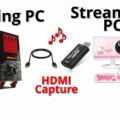The Minnesota Department of Computer Science & Engineering learns not to experiment on kernel developers, Slackware comes out of hibernation, KDE Neon adds an off switch for offline updates, and getting vertical with GNOME 40.
Listen:
Download:
Subscribe Spotify | Pandora | TuneIn | RSS | More
Timestamps:
00:00 Intro
06:24 University of Minnesota banned from Kernel
12:59 Slackware 15 Beta
16:49 Gnome 40 vertical overview
20:49 KDE offline updates become optional
25:09 Logitech keyboard utility
27:14 Apogee ONE on Linux
33:19 Quartz 64 status updates
37:44 Cardboard Pi palmtop
- Greg Kroah-Hartman has banned the University of Minnesota (UMN) from further contributing to the Linux Kernel.
- They did a research paper on the feasibility of stealthily introducing vulnerabilities into open-source software.
- Yeah, they didn’t ask and a lot of extra work has to be done to clean up their nonsense.
- Greg has the opinion that submitting known patches that either do nothing on purpose, or introduce bugs on purpose are bad m’kay.
- Your desire to publish a paper to advance your professional career has caused unnecessary work for several people.
- Welcome to scorched earf policy.
- If you’re wondering, plonk =’s mic drop.
- Looking over the reverts.
- 6 for ALSA.
- 2 for drm/radeon
- Welcome to how to get an entire University’s worth of kernel contributions reverted and blacklisted 101, your professor for this class will be GKH.
- Greg Kroah-Hartman stated:
- “Our community does not appreciate being experimented on, and being “tested” by submitting known patches that are either do nothing on purpose, or introduce bugs on purpose. If you wish to do work like this, I suggest you find a different community to run your experiments on, you are not welcome here.”
- The oldest Linux distro still actively maintained, Slackware Linux, is alive and well with the release of the Slackware Linux 15 Beta!
- It’s been almost 5 years since the last Slackware release, Slackware Linux 14.2, and this release has lots of updates and changes.
- The creator of Slackware, Patrick Volkerding, updated it to include Linux 5.10 kernel, GCC compilers 10.3 and the system library glibc 2.33.
- And KDE was upgraded to Plasma 5.21.4, KDE Applications 5.81.0 and Xfce 4.16.
- This is one of my favorite Linux distros of all time, and the one that started my Linux journey back in 1993.
- Go download and test using the unofficial DVD/CD images.
- 2016 was 5 years ago… That’s a heck of a long time for software development.
- Not everyone can work at the breakneck pace of Debian.
- If you want that GNOME Shell classic look . . .
- Also System76’s new GNOME based desktop, COSMIC, we talked about last week, will keep the vertical workspaces even when they update it to GNOME 40.
- And so… it begins!
- Not only do you need extensions to add basic functionality, you need extensions to put back even the functionality which was there with the 3.* series.
- In all fairness, people missed horizontal workspaces when gnome 3 came out.
This week in KDE (RTheren)
- Apparently enough people kicked up a fuss about the rebooting nature of offline updates that they’re now optional.
- KDE has many flaws, most of them to do with KWin and compositing, but at least they listen when people are up in arms.
- Even if those people are idiots.
- Well then, it would appear it was not originally optional.
- If you want people with the not broke don’t fix mentality to use your distro you have to give them the option to disable chaos inducing things like this.
- You did, good job.
- Mentioned this on Saturday but this software lets you bind the G keys on Logitech keyboards.
- Doesn’t work with the G15, since this makes use of KeyLEDs which only supports newer keyboards with addressable per key LEDs.
- Still waiting on a G button for top on the LCD.
- I’m always on the lookout for audio interfaces that provide a lot of punch for little cost.
- The original Apogee one delivers just that.
- Back in 2009 it was reasonably priced at $250 but in 2021 you can snag one for under $100 with a little patience.
- Why? They were never compatible with Windows and they only work @ 44.1K on modern MACs.
- 63dB of gain for chonky dynamic mics and phantom power for condensers.
- 45dB of gain for line inputs.
- And it’s USB for those of you with an irrational fear of fire noodles.
- It’s limited to a 48K sample rate but that’s all you need for live streaming and podcasts.
Slice of Pi
- New pi-form-factor board from Pine dubbed the Quartz64
- Guess they’re giving away those unsold OG Pinebooks to a non-profit/charity.
- Since the PineTabs are heavily delayed, I am thinking of getting a PinePhone soon.
- And I just picked up a PineBook from Ebay to start my Pine64 device collection :-)
- Steve Husband said I will be starting a Pine Forest ;-)
- The ethernet chip they planned to use with the Quartz64 A has become unavailable and jumped in price 850%.
- The model-A will be pushed back and released closer to the model-B.
- As of now there is no ETA on either.
- They are still very much in the trying to get the software working with the hardware phase of development.
- I liked the idea behind the original Pi-Top
- It’s a shame people had to get creative to do something similar, since it was so gosh darned expensive.
- This is a do it yourself Raspberry Pi Palmtop Computer made from found parts around your house, or available cheaply from your local discount store.
- I love the use of cardboard as a motherboard chassis in a plastic box.
- I think many of us computer geeks are guilty of using cardboard for computer cases! ;-)
Feedback











